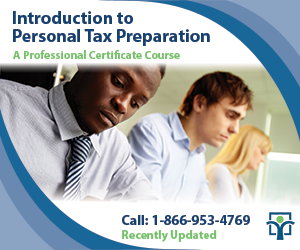Last updated: February 06 2018
Aboriginal Peoples: Tax Filing Considerations
Canada has 1,673,785 aboriginal people, representing 4.9 percent of the population. According to our census, this population has grown 42.5 percent in the period 2006-16 and the average age of the aboriginal people, at 32.1 years, is close to a decade younger than the rest of Canada. There are unique tax filing concerns for these Canadians, requiring specialized knowledge.
Approximately 75 percent of aboriginal people have registered Indian status and 44 percent of these people live on reserves. That’s notable because there is a special tax exemption under section 87 of the Income Tax Act for income earned on the reserve by those living there.
When is investment income tax exempt? It’s a question many aboriginal investors what to know the answer to. Here are the rules:
• Interest Income from a savings or chequing account, a term deposit or guaranteed investment certificate (GIC) that is earned at a financial institution located on the reserve will be tax exempt as long as the financial institution is required to pay the interest income to the taxpayer at a location of the financial institution on a reserve. In the case of a term deposit or GIC, the interest rate is generally fixed or can be calculated at the time the investment is made.
• Dividends, too, will be tax exempt if the head office, management and principal income-generating activities of the corporation are situated on a reserve. The same is true of rental income earned from property situated on the reserve. Moveable property rented to someone off the reserve is considered to be taxable. In the case of royalty income, if the underlying right is situated on-reserve, the royalty income will be tax exempt.
• Capital gains from the disposition of properties on the reserve are tax exempt.
• In the case of RRSPs, exempt income will not qualify for earned-income purposes and so no RRSP deduction can be made. However, if RRSPs are funded with taxable sources, regular rules apply.
• Notably, Old Age Security and Guaranteed Income Supplement payments are taxable. So are support payments made by an estranged spouse if the recipient lives off the reserve.
• Section 87 of the Indian Act does not apply to corporations or trusts, even if they are owned or controlled by an Indian. A corporation or trust is treated as a separate taxpayer and, therefore, neither would be considered an Indian for purposes of the exemption. If a trust has claimed a deduction for amounts paid to an Indian, the amounts must be added to income unless it can be shown there are factors connecting the trust’s income to a reserve, in the case of business or investment income.
 |
It's of course also very important to file for refundable tax credits, even if there is no taxable income. For more information, see the Knowledge Bureau’s Introduction to Personal Tax Preparation course, which student xxxx found particularly enlightening (hotlink – proper name and testimonial from graduate with permission?)
Evelyn Jacks is President of Knowledge Bureau, Canada’s leading educator in the tax and financial services, and author of 53 books on family tax preparation and planning.
Additional Educational Resource: Excerpted from the CE Summit Knowledge Journal, now available for purchase in the Knowledge Bureau Bookstore.
©2018 Knowledge Bureau Inc. All Rights Reserved.





